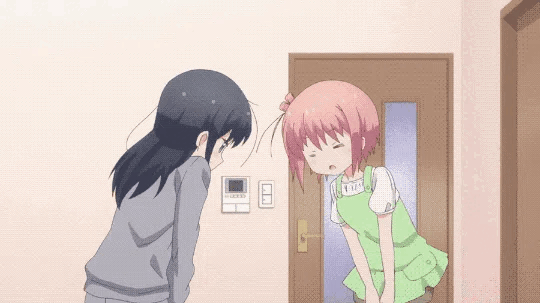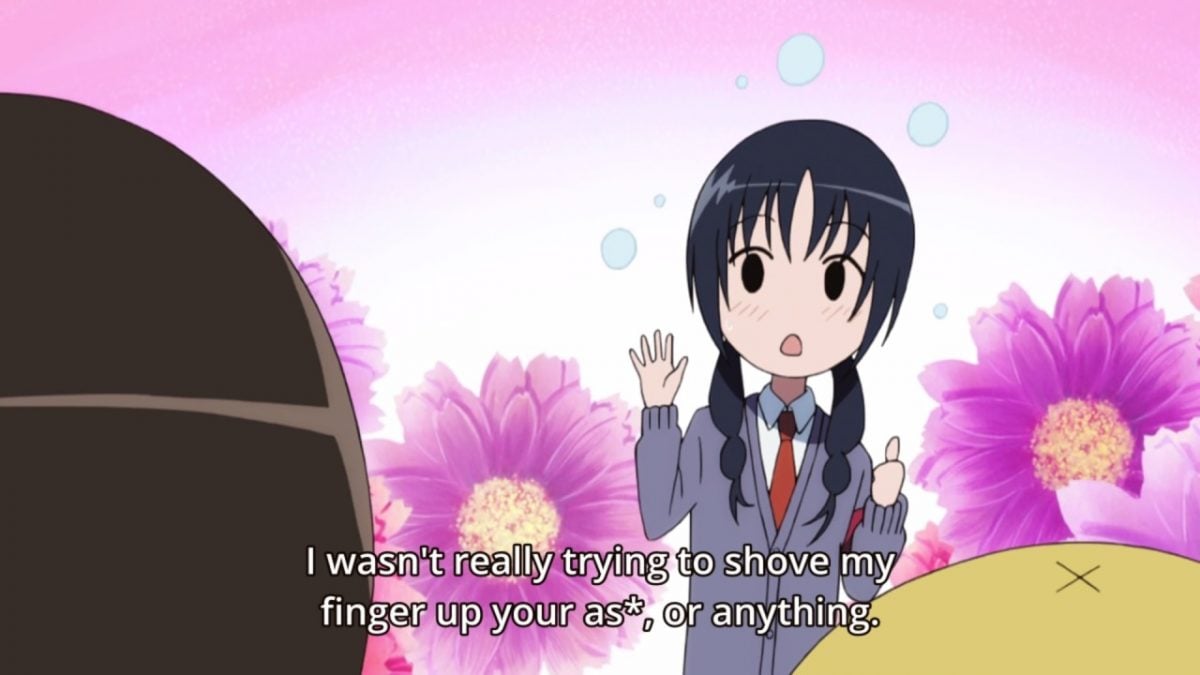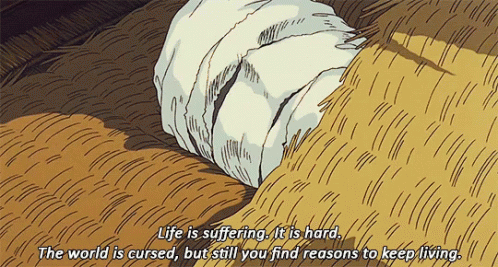I love social media because I can maintain a running conversation with hundreds or thousands of people about topics like Japan or anime or the Japanese language, and get feedback or questions instantly. Recently I posted an amusing tweet teaching how to apologize in Japan, which generated some discussion about whether using sarcasm while speaking Japanese would be well-received or not. Let’s delve into this interesting topic!
How to apologize in Japanese pic.twitter.com/PvxLzldPqR
— J-LIST (@jlist) May 24, 2022
The tweet was a photo from Dirty Japanese, a book that teaches you off-color and sexual Japanese phrases. It jokingly shows how to apologize politely, how to say “pardon me for living!”, how to apologize in a very informal way, and how to say “excuse my shitty Japanese.” Very funny stuff.
But the tweet generated some discussion about whether using phrases like this would be rude to do in Japan, and I thought I’d write a post for anyone who was interested in the mechanics of the language of Japan.

How Does Polite Japanese Work?
Simply put, Japanese verbs come in two flavors: formal and informal. When speaking to a teacher or neighbor or a senpai, you’d use formal Japanese verbs (tabemasu, nomimasu, ikimasu), but if you’re talking with someone of the same age as you or younger, you’ll use informal verbs (taberu, nomu, iku). There are also different pronouns that are more formal (watashi, anata) or less formal (ore, kimi, omae) that get switched depending on who you’re interacting with. Using the wrong language for the wrong social situation feels “off” to Japanese people, and will make it harder for them to interact with that person without feeling stress.
What are five linguistic concepts that define the Japanese language and thus, the Japanese people? Here’s a blog post I wrote!
Back when I was studying Japanese at university, I stood out as a “problem student” because I knew many phrases and words the other students didn’t know, because I was avidly reading manga like Urusei Yatsura, Maison Ikkoku and Kimagure Orange Road. One of my teachers went so far as to forbid me to read manga. “That’s not Japanese,” she said, as if the only thing that mattered was the overly formal language my textbook was teaching me. I was angry that she wasn’t supportive of the extra energy I was putting into my studies.
And yet…she was right, in a way. While any linguistic input is helpful for learning a language, especially things that I can develop a strong emotional attachment to, learning from a “pop culture” medium like manga is dangerous because I could cause offense if I spoke informally to the wrong person in the wrong context. And there were a few months where I was speaking like a character from Fist of the North Star, which is definitely not standard Japanese. I had to unlearn a lot of what manga was teaching me.

Does Sarcasm Exist in Japan? It’s Complicated
My kids had interesting childhoods, being born to a father who had training in linguistics and bilingual studies who was ready to engineer the perfect environment for them to learn English. From an early age we read Dr. Seuss books, and every DVD in our house was in English, thanks to my policy of never allowing any Japanese language media in our home while my kids were small. If they wanted to watch Harry Potter, they had to watch the English version, and they didn’t discover that Japanese dubbed Disney films were a thing until the age of five or so.
Being a British-American haafu, I’m naturally a sarcastic person, saying things like “oh, this is the most delicious food in the world!” if something I’m eating isn’t terribly good. Naturally this rubbed off on my children to some degree. Once I heard my son imitating me, saying of a teacher who had a bad reputation that “they were the best teacher in the school! No one is better than that teacher!”…but the other kids literally didn’t understand what he was saying, and he had to explain his meaning to them.

I love it when a concept in one language can’t translate cleanly over to another language, as is often the case between English and Japanese, because it forces us to think more deeply about the word as we adapt it to the other language. The idea of sarcasm — using hyperbolic statements to mock or make light of something — translates as 皮肉 hiniku in Japanese, literally meaning hide-flesh, which is a direct translation of its original Greek root words. But the trouble is, two similar words, irony and cynicism, both also translate as hiniku in Japanese. My wife is always trying to separate the three concepts in her mind, because they’re all the same to her.

But Things Work Differently for Foreigners
One person responded to my tweet by asking if saying things like “pardon me for living” or “please excuse my shitty Japanese” would be socially unacceptable to Japanese people. And while I certainly think you shouldn’t go using potentially inappropriate phrases you learned from a book like Dirty Japanese with people you encounter in Japan, the truth is that foreign visitors from abroad aren’t expected to follow every little social convention and are given broad leeway to make social errors and be forgiven for them. If you said something that didn’t make sense to them — and no Japanese would have ever heard a phrase like ikitete sumimasen in their lives — they’d take it in stride because of your special status as gaijin.
So when you plan your next trip to Japan, don’t worry about any social faux pas you might make while you’re here, and get ready to enjoy yourself!
Thanks for reading this post exploring the concept of sarcasm and the Japanese language. Got any questions? Post them below, or reply to us on Twitter!
Every day J-List brings more awesome new hentai doujinshi to everyone, from Japan’s best artists, including both Japanese language releases as well as awesome English translated doujins. Browse all our new offerings here!
















